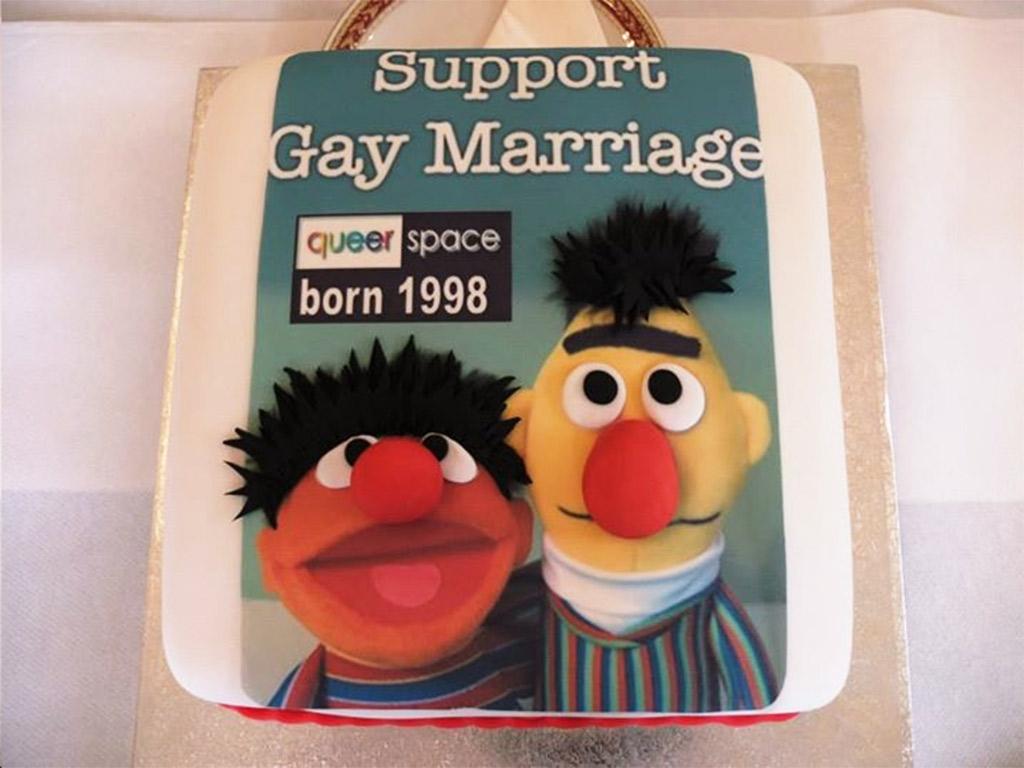Ashers Bakery’s defeat is no win for the LGBT community – it sets a dangerous and authoritarian precedent
Discrimination against LGBT people is wrong and is rightly unlawful. But in a democratic society, people should be able to discriminate against ideas they disagree with


Your support helps us to tell the story
From reproductive rights to climate change to Big Tech, The Independent is on the ground when the story is developing. Whether it's investigating the financials of Elon Musk's pro-Trump PAC or producing our latest documentary, 'The A Word', which shines a light on the American women fighting for reproductive rights, we know how important it is to parse out the facts from the messaging.
At such a critical moment in US history, we need reporters on the ground. Your donation allows us to keep sending journalists to speak to both sides of the story.
The Independent is trusted by Americans across the entire political spectrum. And unlike many other quality news outlets, we choose not to lock Americans out of our reporting and analysis with paywalls. We believe quality journalism should be available to everyone, paid for by those who can afford it.
Your support makes all the difference.The Appeal Court in Belfast today ruled that a local Christian-run business, Ashers Bakery, acted unlawfully when it refused to decorate a cake with a political pro-gay marriage message.
This verdict is a defeat for freedom of expression. As well as meaning that Ashers can be legally forced to aid the promotion of same-sex marriage against their wishes, it also implies that gay bakers could be forced by law to decorate cakes with homophobic slogans.
It seems the judges have decided that businesses cannot lawfully refuse a customer’s request to propagate a message, even if it is sexist, xenophobic or anti-gay and even if the business owners have a conscientious objection to it.
Although I strongly disagree with Ashers’ opposition to marriage equality, in a free society neither they nor anyone else should be compelled to facilitate a political idea they oppose.
Ashers did not discriminate against the customer, Gareth Lee, because he was gay. They objected to the message he wanted on the cake: “Support gay marriage.”
Discrimination against LGBT people is wrong and is rightly unlawful. But in a democratic society, people should be able to discriminate against ideas they disagree with. I am saddened that the court did not reach the same conclusion.
This judgment opens a can of worms. It means that a Muslim printer could be obliged to publish cartoons of Mohammed and a Jewish printer could be required to publish a book that propagates Holocaust denial. It could also encourage far-right extremists to demand that bakers and other service providers facilitate the promotion of anti-immigrant and anti-Muslim opinions.
What the court has decided sets a dangerous, authoritarian precedent that is open to serious abuse.
Discrimination against people should be illegal but not discrimination against ideas and opinions.
Like most gay and equality campaigners, I initially condemned Ashers over its refusal to produce a cake with a pro-gay marriage slogan for Gareth Lee.
I supported his legal claim against Ashers and the subsequent verdict, which last year found the bakery guilty of discrimination.
First, Ashers had falsely advertised their services, saying they were willing to decorate their cakes with any message that a customer wanted. They did not say there were any limits on the designs or wording.
Second, I feared that Ashers’ actions could open the floodgates to a revival of sectarian loyalist-republican discrimination and discrimination against women, LGBTs and other minorities – and their points of view.
But I later changed my mind. Much as I wish to defend the LGBT community, I also want to defend other important human rights, such as freedom of conscience, expression and religion.
While Christian bed and breakfast owners and civil partnership registrars were clearly wrong to deny service to gay people, this case is different. It is about the refusal to facilitate an idea – namely, support for same-sex marriage.
The equality laws are intended to protect people against discrimination. A business providing a public service has a legal duty to do so without discrimination based on race, gender, faith, sexuality and so on.
The court has erred by ruling that Gareth was discriminated against because of his sexual orientation.
It argued that Ashers “would not have objected to a cake carrying the message ‘Support Heterosexual Marriage’ or indeed ‘Support Marriage’.”
The judges determined that by refusing to provide a cake with different, pro-gay marriage wording, Ashers had treated the customer differently and less favourably, contrary to the law.
They went on to say:
“We accept that it was the use of the word ‘gay’ in the context of the message which prevented the order from being fulfilled. The reason the order was cancelled was that the appellants would not provide a cake with a message supporting a right to marry for those of a particular sexual orientation. This was a case of association with the gay and bisexual community and the protected personal characteristic was the sexual orientation of that community. Accordingly this was direct discrimination.”
However, Gareth’s cake request was not turned down because he was gay but because of the message he wanted on the cake. There is no evidence that his sexuality was the reason Ashers declined his order or that their refusal to decorate the cake with the message he wanted was an act of discrimination against his sexuality.
The judges concluded that service providers are required by law to facilitate any lawful message, even if they have a conscientious objection to it.
This begs the question: Will gay bakers have to accept orders for cakes with homophobic slurs? I don’t think LGBT people should be forced to promote anti-gay messages.
It is an infringement of freedom to require businesses to aid the promotion of ideas to which they conscientiously object. Discrimination against people should be always unlawful but not discrimination against ideas and opinions.
Peter Tatchell is Director of the human rights organisation, the Peter Tatchell Foundation
Join our commenting forum
Join thought-provoking conversations, follow other Independent readers and see their replies
Comments